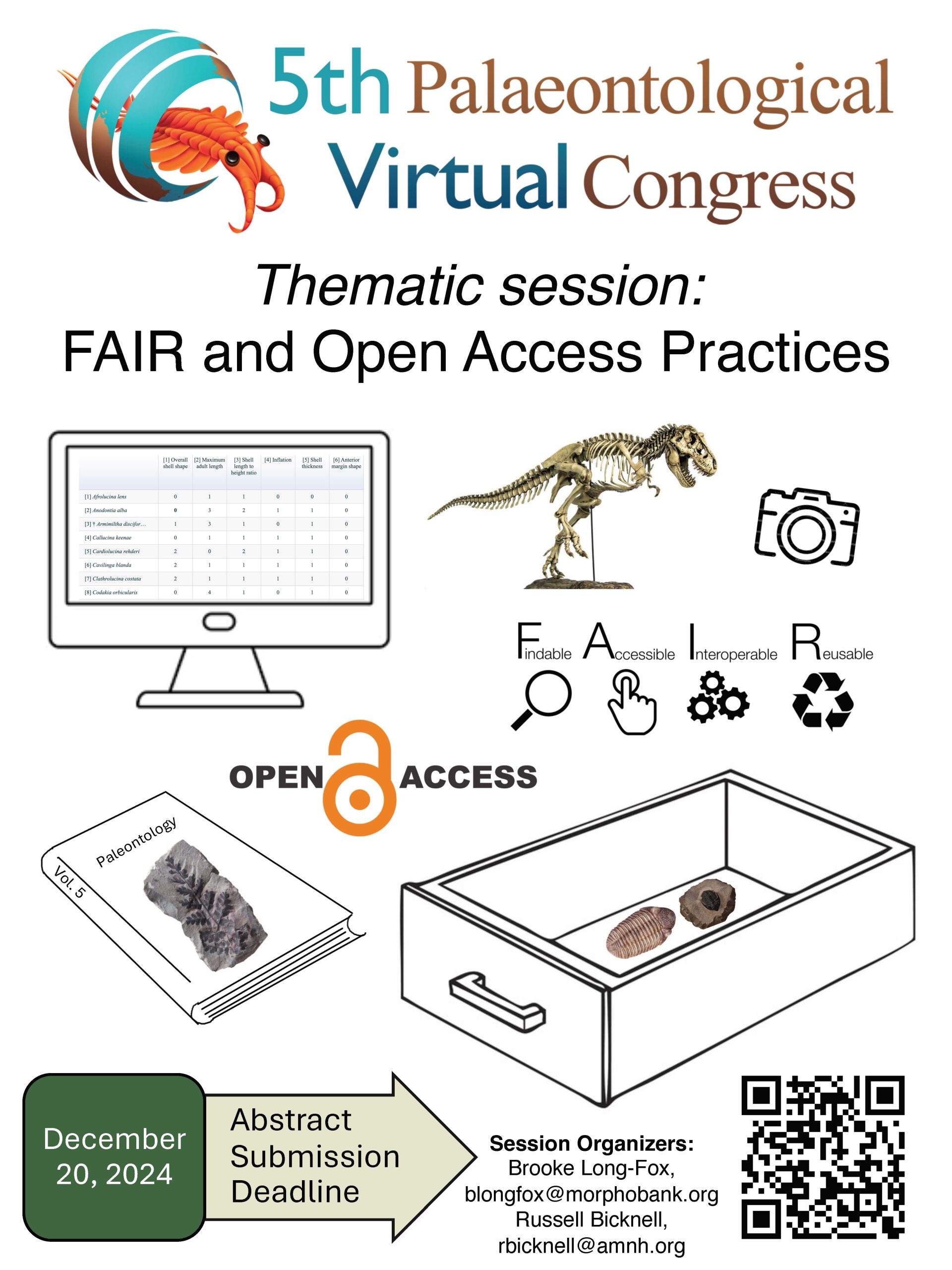FAIR and Open Access Practices

AUTHORS
Brooke L. Long-Fox
MorphoBank, Phoenix Bioinformatics, USA
blongfox@morphobank.org
Russell Bicknell
Division of Paleontology (Invertebrates), American Museum of Natural History, USA
rbicknell@amnh.org
Abstract
The adoption of FAIR (Findable, Accessible, Interoperable, and Reusable) principles has become a cornerstone of modern, specimen-based research, offering a framework to improve data sharing, accessibility, and transparency. Open access (OA) in paleontology refers to the practice of making scientific research, data, and resources freely available online to anyone, without subscription or paywall barriers. This thematic session explores the application of both OA and FAIR practices within paleontology, a field that generates vast, diverse, and often interdisciplinary datasets. This session invites contributions that highlight efforts to implement OA and FAIR principles in paleontology and is intended to highlight success stories in data sharing and reuse, as well as opportunities to foster collaboration through open repositories, linked data frameworks, and advanced metadata standards. Exemplary topics of interest include open access repositories, journals, and digital libraries, as well as FAIR data standards for innovative approaches to digitizing and cataloging fossil collections, the development of interoperable data standards for diverse paleontological datasets, and strategies to overcome challenges in ensuring long-term data accessibility. Particular attention will be given to the role of emerging technologies—such as AI, machine learning and 3D imaging—in making paleontological data more discoverable and usable. The session will also consider how FAIR principles can support equity in research by enabling access to valuable data resources for underrepresented communities and institutions worldwide.
